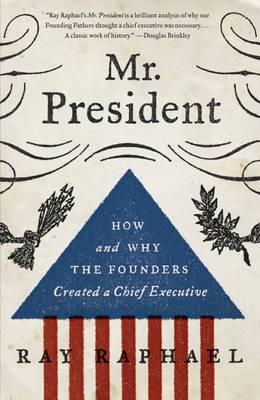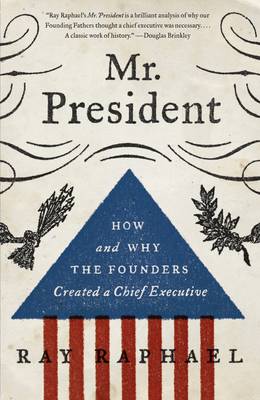
- Retrait gratuit dans votre magasin Club
- 7.000.000 titres dans notre catalogue
- Payer en toute sécurité
- Toujours un magasin près de chez vous
- Retrait gratuit dans votre magasin Club
- 7.000.000 titres dans notre catalogue
- Payer en toute sécurité
- Toujours un magasin près de chez vous
22,45 €
Description
The dramatic and penetrating story of the political maneuverings and personalities behind the creation of the office of the president, with ramifications that continue to this day.
For the first time, by focusing closely on the dynamic give-and-take at the Constitutional Convention, Ray Raphael reveals how politics and personalities cobbled together a lasting, but flawed, executive office. Remarkably, the hero of this saga is Gouverneur Morris, a flamboyant, peg-legged delegate who pushed through his agenda with amazing political savvy, and not a little deceit. Without Morris's perseverance, a much weaker American president would be appointed by Congress, serve for seven years, could not be reelected, and have his powers tightly constrained. Charting the presidency as it evolved during the administrations of Washington, Adams, and Jefferson, Raphael shows how, given the Constitution's broad outlines, the president's powers could easily be augmented but rarely diminished. Today we see the result--an office that has become more sweeping, more powerful, and more inherently partisan than the framers ever intended. And the issues of 1787--whether the Electoral College, the president's war powers, or the extent of executive authority--continue to stir our political debates.Spécifications
Parties prenantes
- Auteur(s) :
- Editeur:
Contenu
- Nombre de pages :
- 336
- Langue:
- Anglais
Caractéristiques
- EAN:
- 9780307742384
- Date de parution :
- 22-01-13
- Format:
- Livre broché
- Format numérique:
- Trade paperback (VS)
- Dimensions :
- 134 mm x 208 mm
- Poids :
- 254 g







